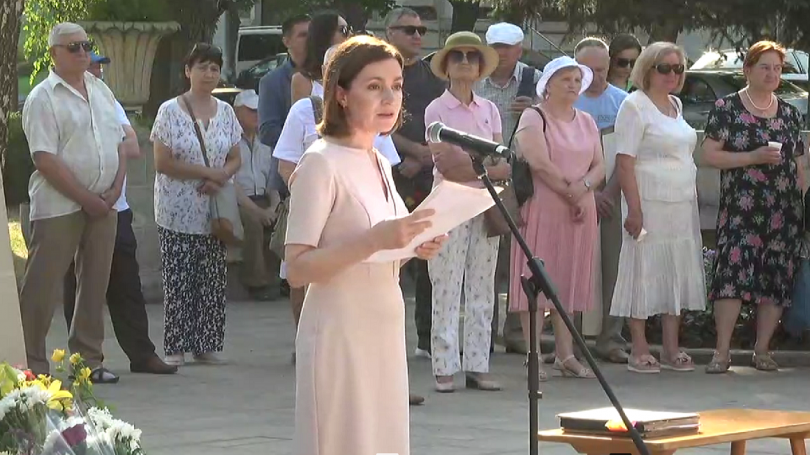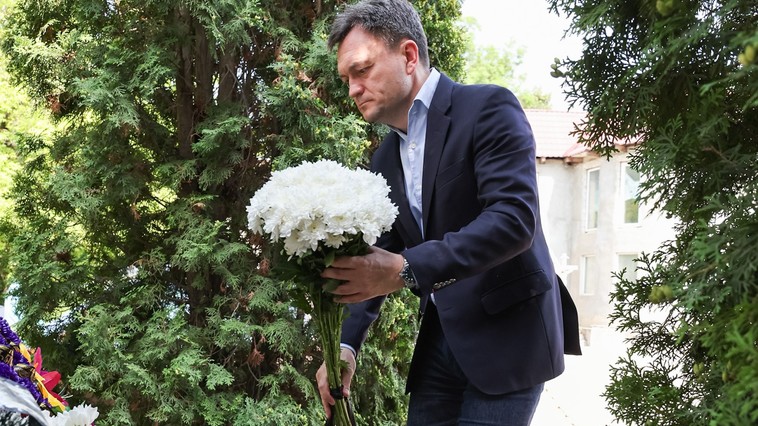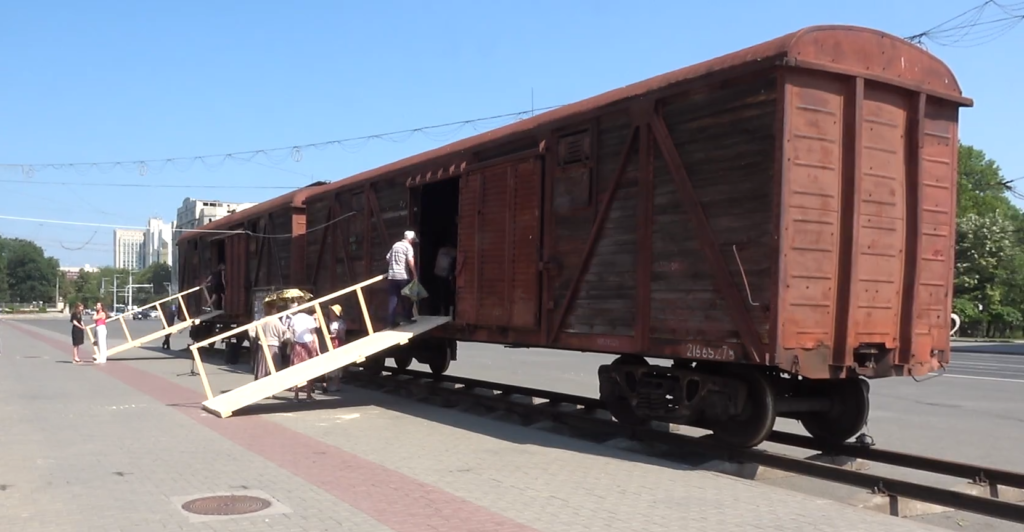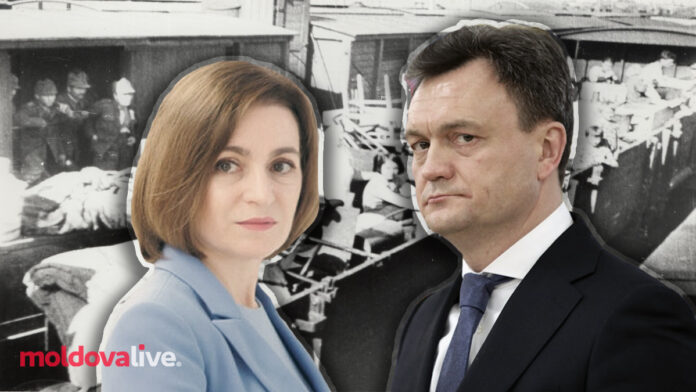Moldova commemorated the victims of the Stalinist regime’s forced deportations on Thursday, marking the 74th anniversary of the second wave of deportations in the country. President Maia Sandu emphasized the duty to continue sharing the stories of terror in the Gulags, “so that our future can be built on the foundation of truth, the memory of our ancestors, and the hope that we will never allow our people to be subjected to such horrors.” The event, organized with the occasion, brought together people of all ethnicities to remember the tragic events.

Speaking at the ceremony, President Sandu recounted how individuals of all ages, including “children, the elderly, fathers, and mothers, were treated as mere numbers, disregarding their humanity.” She noted that one-third of the deportees were children under the age of 15, declared enemies of the people by the Soviet authorities. Sandu spoke about the three waves of deportations—June 1941, July 1949, and April 1951—and the organized famine inflicted by the Soviet Union. In less than a year, between December 1946 and August 1947, an average of 425 people died daily from starvation.
“For many years, we were prohibited from speaking about the terror that Moldova endured, forced to mourn our pain in secret. Today, we can do it openly. Today, we have a duty to do so,” emphasized the president.
She expressed disappointment at certain individuals, including some in Parliament, who praise the Soviet past, responsible for the loss of countless Moldovans, while every family has someone who experienced deportation.
“The Russian Federation, the legal successor of the Soviet Union, has never taken responsibility for these past tragedies and has not allocated any funds for compensating the citizens subjected to repression,” Sandu added.
FOR THE MOST IMPORTANT NEWS, SUBSCRIBE TO OUR TELEGRAM CHANNEL!
Prime Minister Dorin Recean paid his respects by laying flowers at the memorial monument in Florești, dedicated to the victims of the Stalinist deportations. During his visit, the prime minister engaged in a conversation with Elena Postolache-Șoimu, a survivor of the Soviet Gulag, who shared her harrowing story and that of her family.

According to a statement from the government, Prime Minister Recean thanked Elena Postolache-Șoimu for her courage and resilience, as well as for her fight, alongside other Moldovans, for her rights and freedom.
“We honor the memory of those who were deported to distant lands and carried this trauma throughout their lives—families torn apart, physical and emotional suffering, injustice. Commemorating the second wave of deportations, we must ensure that such atrocities will never happen again. We must defend fundamental human values and stand in solidarity with all those who still face repression and injustice,” stated Recean.
Throughout Moldova, various events are being held today to remember the victims of deportations. In Chișinău, at the Great National Assembly Square, an immersive exhibition titled “Basarabenii în Gulag” (Basarabians in the Gulag) was inaugurated and is open to the public.



